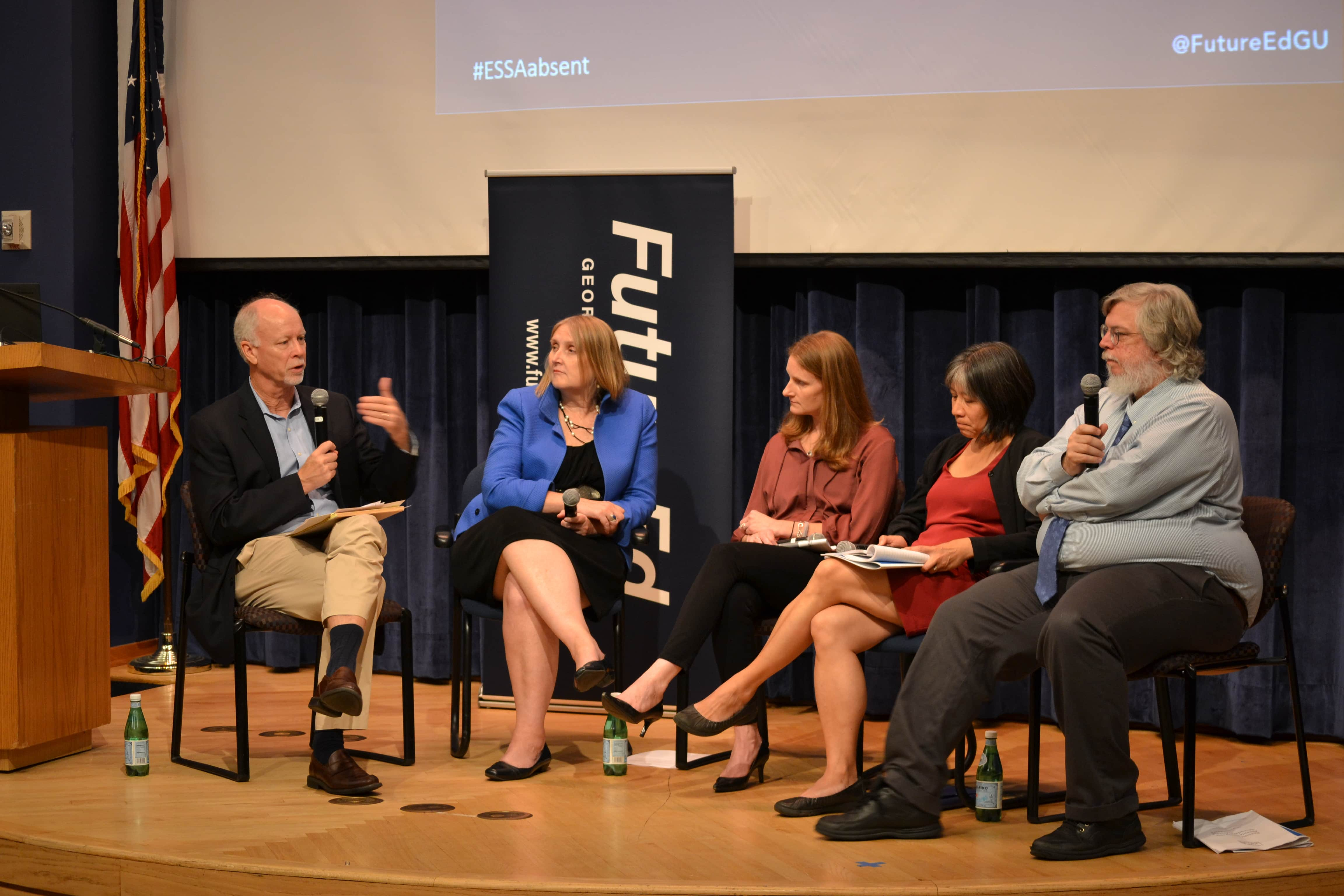
– When Congress rewrote the major elementary and secondary school law in 2015, lawmakers sought to scale back the emphasis on standardized test scores The result was the Every Student Succeeds Act (ESSA), which requires states to include five indicators measuring school performance: four focused on academic achievement, and a fifth, “non-academic” measure of school quality or student success.
So what did states choose for this “fifth indicator?”
At an event on Sept. 26, FutureEd Director Thomas Toch and Editorial Director Phyllis Jordan laid out the findings from their report: “Who’s In: Chronic Absenteeism under the Every Student Succeeds Act,” co-authored by Jordan and Research Director Raegen Miller.
Among their findings:
36 states and the District of Columbia are using some form of chronic student absenteeism in their accountability formulas.
At least 27 of the states use the same definition: missing 10 percent or more of enrolled days.
Some states are setting ambitious, and perhaps unrealistically high, attendance goals for schools. In several places, no more than a quarter of the schools would meet expectations.
States are giving relatively modest weight to chronic absenteeism in their accountability formulas and,in many cases, combining it with other indicators.
The biggest differences in chronic absenteeism rates come not among districts or states, but between schools within the same district. This makes it critically important that superintendents and principals are equipped to deal with excessive absences–whether excused, unexcused or for disciplinary reasons.
“The decision by so many states to include chronic absenteeism as an accountability metric presents an opportunity to address this problem and the root causes that keep kids from learning,” Jordan said. “It could also create a backlash against the attention to attendance, unless states do this right.”
The event included a panel discussion that included two of the nation’s leading experts on school attendance: Robert Balfanz of John Hopkins University’s Everyone Graduates Center and Hedy Chang of the nonprofit Attendance Works. In addition, Kirsten Carr of the Council for Chief State School Officers provided insight on state perspectives.
View the live stream and see a state-by-state breakdown.